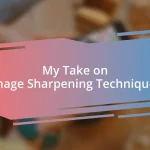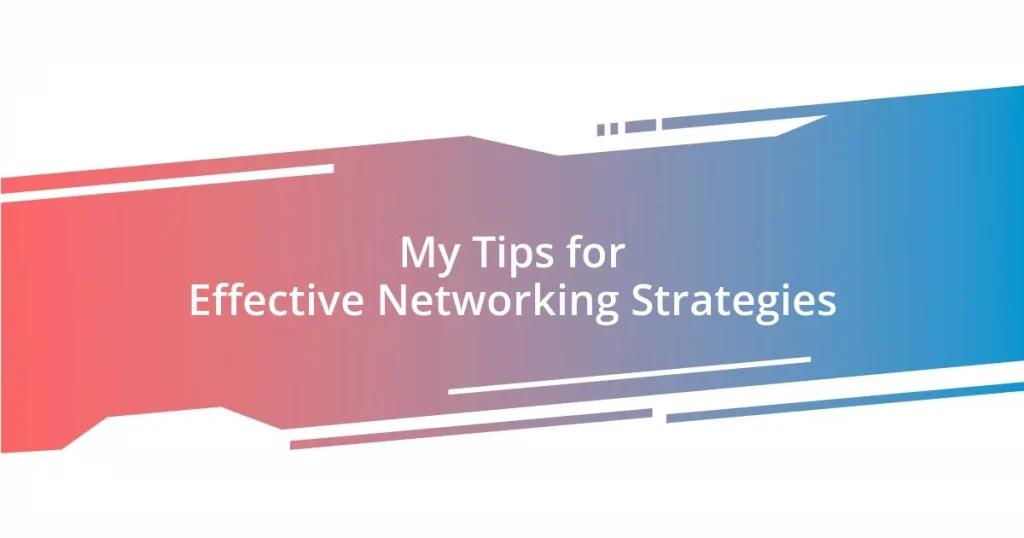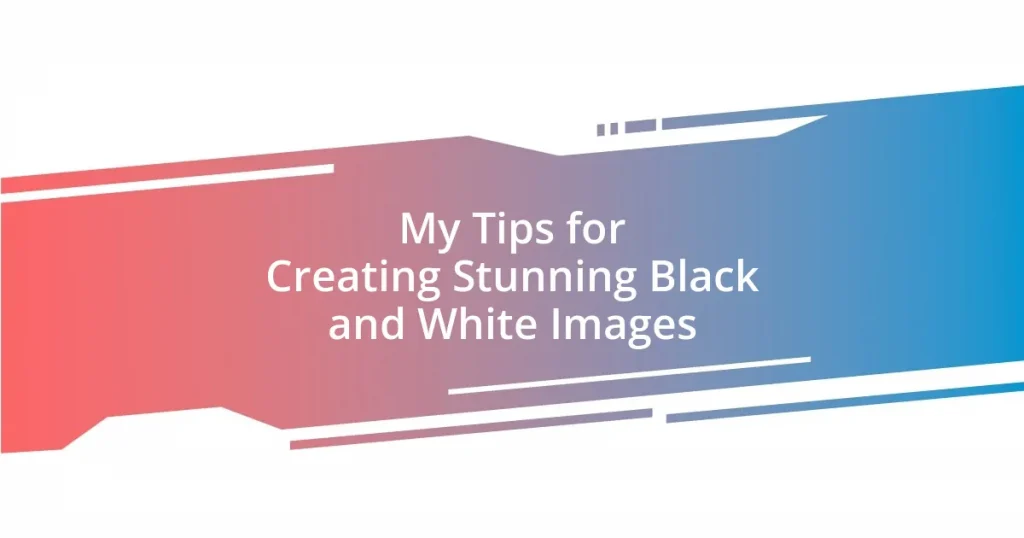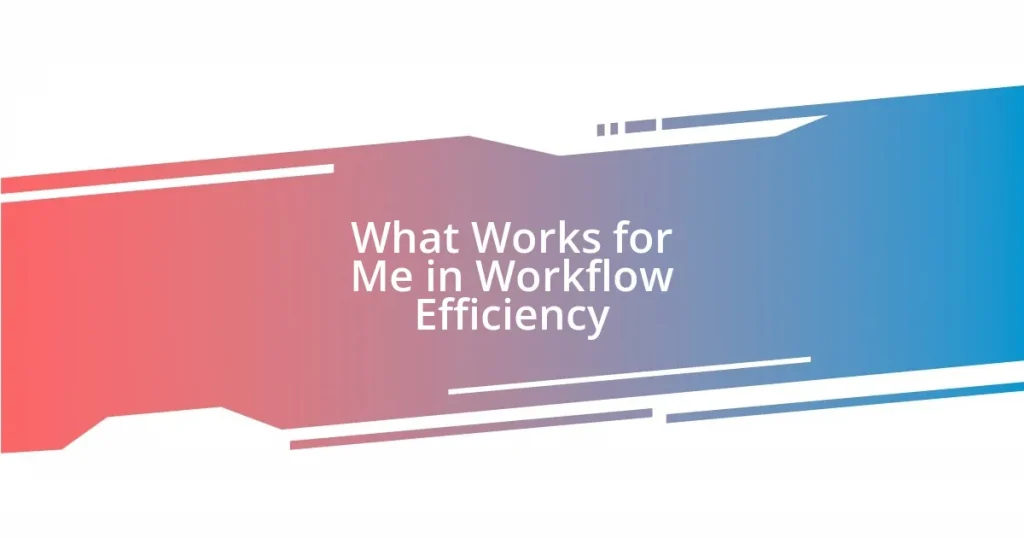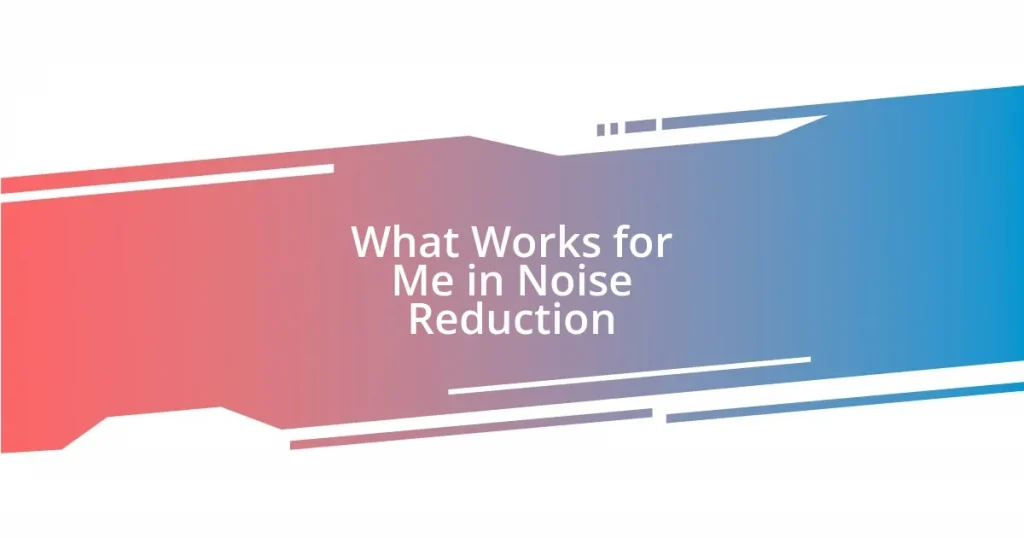Key takeaways:
- Networking is about building genuine relationships that can lead to unexpected opportunities and support.
- Identifying clear networking goals enhances the effectiveness and satisfaction of networking interactions.
- A strong online presence through authentic engagement and valuable content can significantly expand your professional network.
- Following up with connections personally and promptly can deepen relationships and lead to tangible collaboration opportunities.
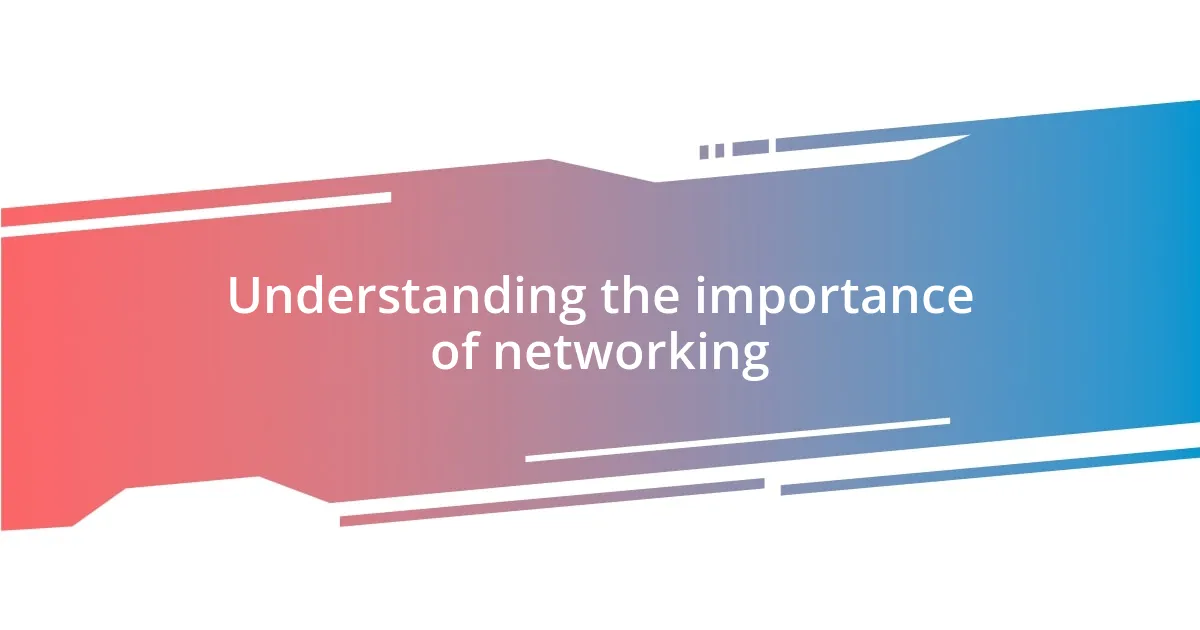
Understanding the importance of networking
Networking goes beyond just exchanging business cards; it’s about building meaningful relationships. I recall a time when a simple coffee chat led to a collaboration I hadn’t anticipated. It made me realize how powerful a genuine connection can be in opening doors to opportunities.
Think back to a moment when someone’s introduction changed the course of your career. I can vividly remember meeting a professional at a conference who became my mentor. That connection not only provided guidance but also boosted my confidence in pursuing my goals. Isn’t it fascinating how one conversation can shift our trajectory?
In today’s fast-paced world, knowing the right people can significantly impact your success. I often find myself reflecting on how networking has enriched my personal and professional life. It evokes a sense of community, support, and shared resources—an essential ingredient in navigating challenges in our journey. Isn’t that what we all crave?
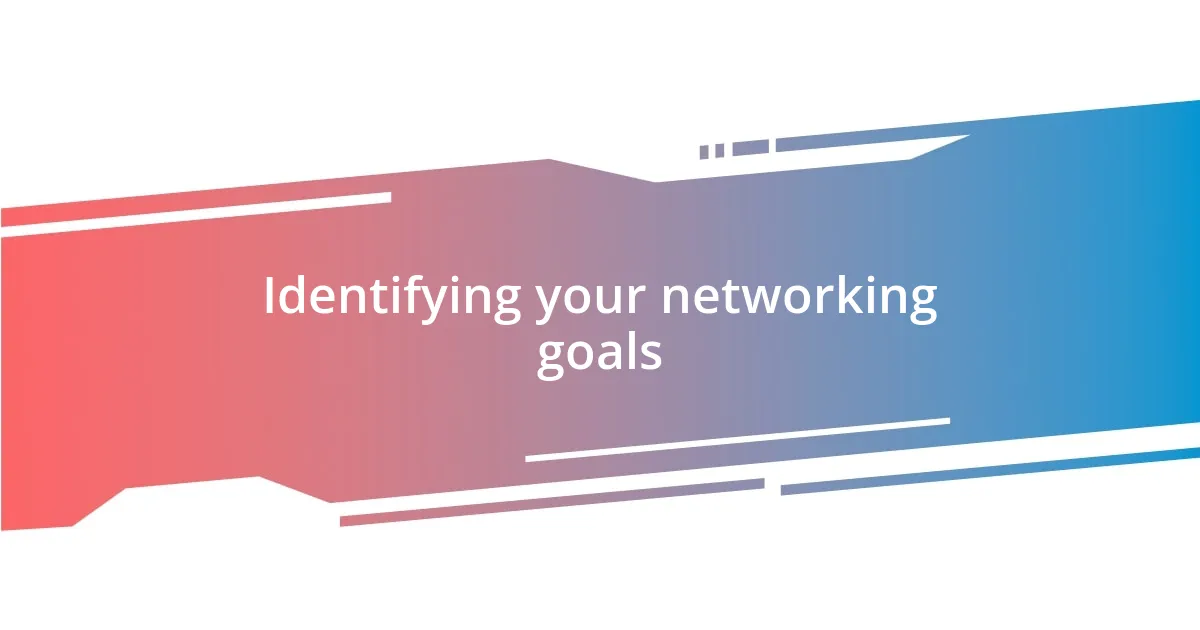
Identifying your networking goals
Identifying your networking goals is an essential first step. I’ve learned that having clear objectives helps direct my conversations and connections. For example, when I decided to enter a new industry, I focused on building relationships with experts in that field. This clarity made my networking efforts not only more efficient but also more fulfilling as each interaction had a purpose.
When I think about past networking experiences, I realize that identifying specific goals has transformed my approach. At a recent industry event, I sought to connect with potential mentors rather than just anyone in the room. That shift in focus led to deeper conversations and more meaningful connections. It was rewarding to find people who resonated with my aspirations.
To illustrate the importance of having distinct networking goals, consider how they can differ based on intent. Are you looking to find a mentor, add to your professional circle, or explore job opportunities? Each of these goals requires a different strategy and mindset. Pinpointing what you want out of your networking experience can dramatically enhance your results and enrich your professional journey.
| Networking Goal | Strategy |
|---|---|
| Find a Mentor | Seek out experienced individuals in your field and ask for advice. |
| Expand Professional Circle | Attend industry events and engage in casual conversations. |
| Explore Job Opportunities | Connect with recruiters and hiring managers on professional platforms. |
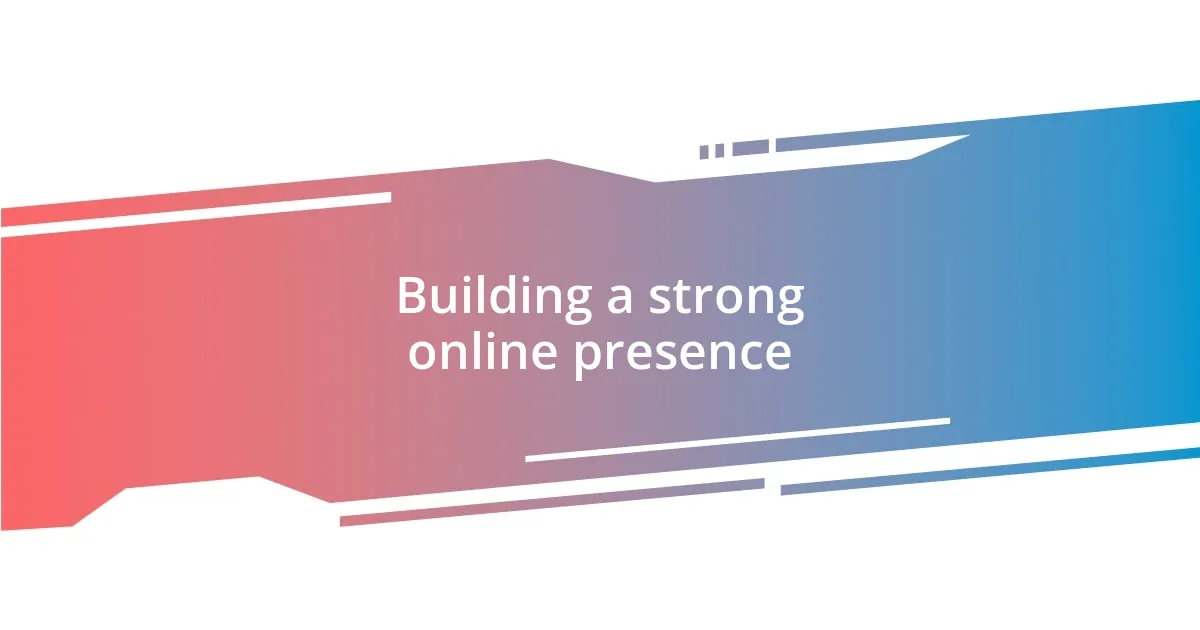
Building a strong online presence
Building a strong online presence has become a cornerstone of effective networking in our digital age. I remember the early days of my professional journey when I hesitated to share my thoughts online, fearing judgment. However, once I began to contribute to discussions and share insights on social platforms, I found an incredible wave of support and encouragement from unexpected corners. That sense of belonging fueled my confidence and expanded my network in ways I never imagined.
To build a compelling online presence, consider these strategies:
-
Choose your platforms wisely: Focus on spaces where you can truly engage with your target audience, whether it’s LinkedIn, Twitter, or industry-specific forums.
-
Share valuable content: Posting articles, insights, or even personal stories can attract like-minded professionals. I often share lessons learned from my experiences, which resonate well with others.
-
Engage authentically: Comment on others’ posts and participate in discussions. I recall a time when a thoughtful comment led to a meaningful connection, resulting in a collaborative project.
-
Optimize your profiles: Ensure your online profiles reflect your goals and expertise. A well-crafted bio can be a conversation starter.
-
Follow industry leaders: By following and engaging with thought leaders, I gained insights and established connections that have been invaluable for my career growth.
Building that online persona isn’t just about visibility; it’s about cultivating relationships that can nourish your career and personal growth. What’s your story in the digital world?
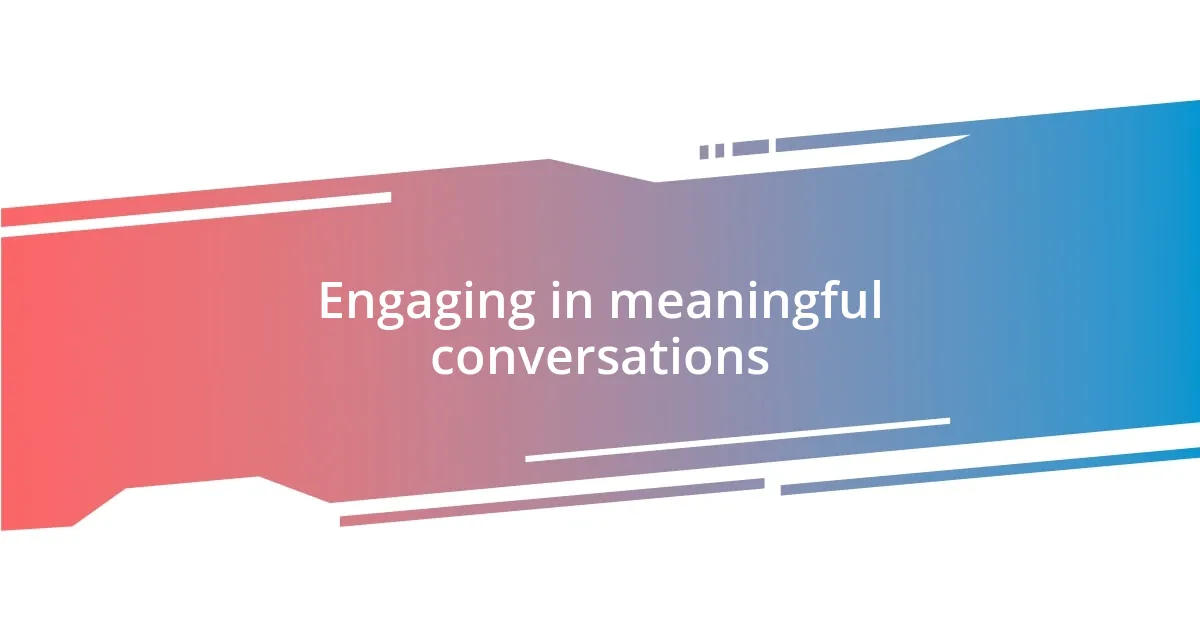
Engaging in meaningful conversations
Engaging in meaningful conversations requires more than just exchanging pleasantries; it’s about seeking genuine connections. I remember attending a networking event where the usual small talk filled the air. Instead of diving into standard questions, I decided to ask about people’s motivations for their career choices. The shift in tone was immediate and refreshing. It’s in those deeper dialogues that I discovered common passions and dreams, fueling relationships that have lasted far beyond that night.
Active listening plays a crucial role in making conversations impactful. I’ve often found that when I focus on truly understanding the other person’s perspective, rather than just waiting for my turn to speak, magic happens. For instance, during a recent coffee chat with a new contact, I put aside my agenda and really tuned in to their story. They opened up about challenges in their industry, and we brainstormed solutions together. That collaborative spirit made our bond more than just a surface-level connection; it forged a partnership founded on mutual support.
Have you ever left a conversation feeling energized? That’s the hallmark of a meaningful interaction. I find that when passion resonates in conversation, it lingers long after. I recall a discussion about innovative projects where we both shared excitement for new ideas. Our exchange lit a spark of creativity, reminding me how sharing visions and ambitions can lead to fantastic collaborative opportunities. In essence, it’s those vibrant, heartfelt dialogues that pave the way for enriching professional relationships.
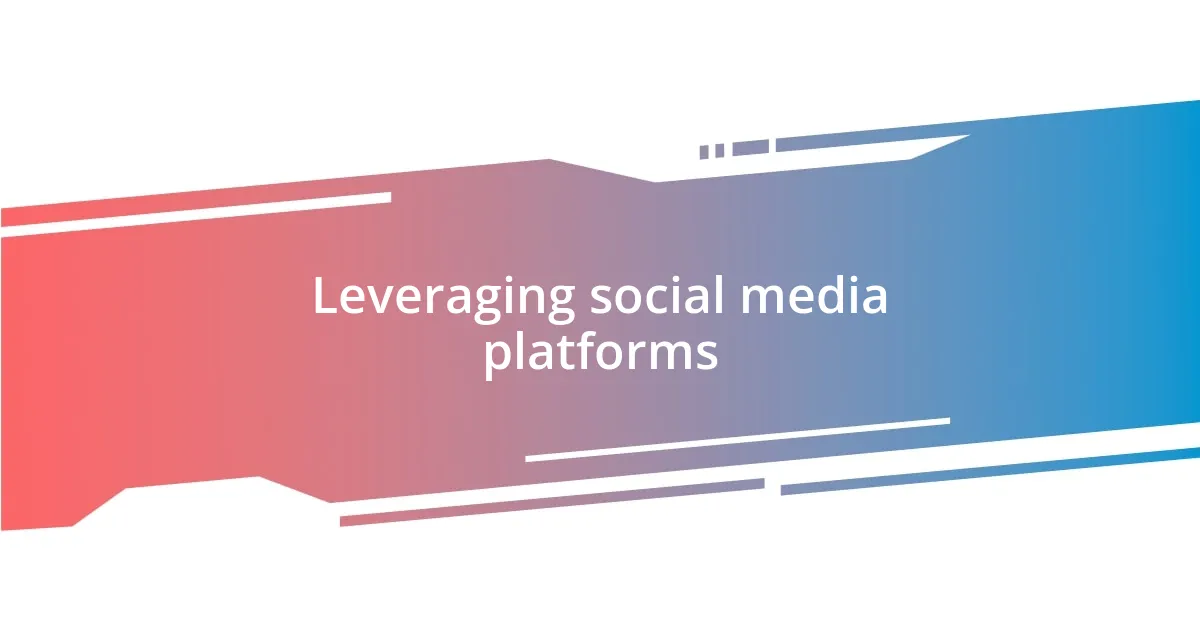
Leveraging social media platforms
Leveraging social media platforms offers a dynamic way to expand our professional networks. I remember when I first explored Twitter for professional interactions; it felt exhilarating yet daunting. Engaging with industry hashtags and participating in Twitter chats opened doors I never knew existed. Have you ever felt that rush of excitement when your tweet gets noticed by an industry leader?
Platforms like LinkedIn serve as powerful tools for showcasing achievements and connecting with colleagues. One time, I updated my profile with a recent project I had completed, and it led to numerous messages from fellow professionals eager to collaborate. This experience showed me how a well-timed post can generate interest and opportunities. Have you considered that your next career move might just be a LinkedIn connection away?
Moreover, the beauty of social media lies in its immediacy; followers can interact with your content in real-time. I often host live Q&A sessions where I share insights and success stories related to my field. These interactions not only build rapport but also help nurture a supportive community. What has your experience been with live sessions or webinars in connecting with your audience? It’s fascinating how social media can turn a simple idea into a vibrant conversation, linking people across the globe.
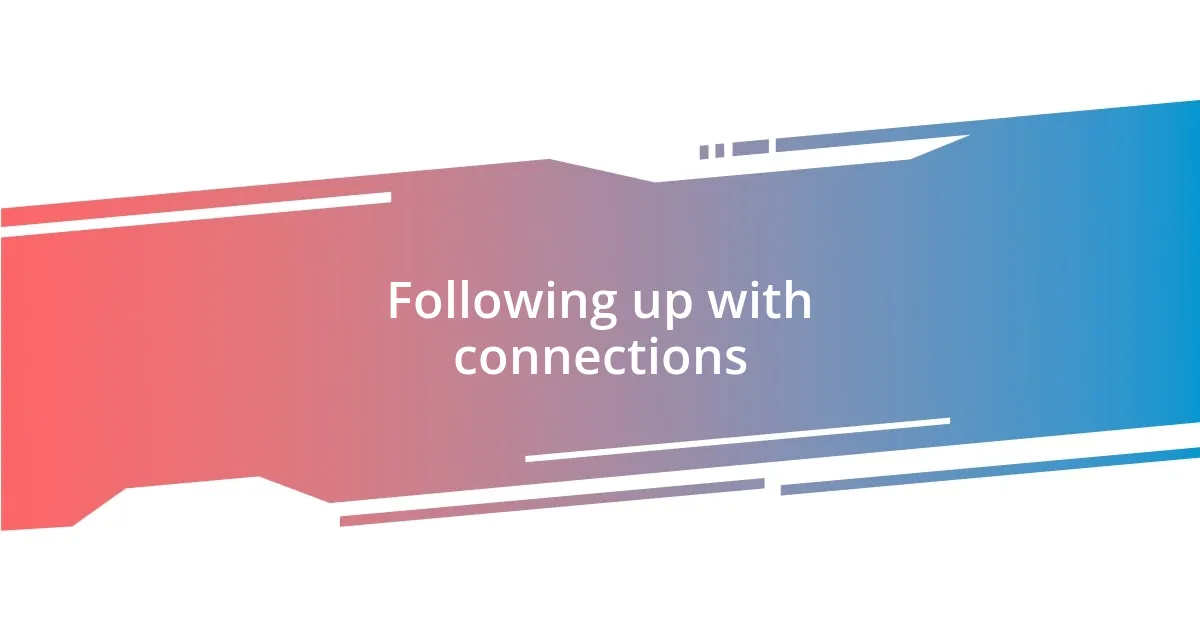
Following up with connections
Following up with connections is an essential step that many overlook. I have a habit of jotting down a few notes right after meeting someone, detailing key topics we discussed or any common interests. This small act has made a world of difference when I reach out days or weeks later. Instead of sending a generic message, I reference our conversation, making it feel personal and sincere. Isn’t it nice to remind someone of a shared moment? It adds warmth and depth to the relationship.
I find that timing is also crucial in following up. After a networking event, I often shoot a quick email or message within 48 hours. It’s like catching a wave when it’s still fresh. I remember connecting with a designer who had a unique approach to branding. I followed up right after the event, and within a week, we ended up collaborating on a project that sparked creative innovation for both of us. Have you ever wondered why those timely messages make such a difference? They show genuine interest and keep the momentum alive.
Lastly, it’s vital to approach follow-ups with a mindset of adding value. I like to share an interesting article or resource related to our conversation, or even a relevant event I think they’d enjoy. This not only reinforces my interest but allows us to continue the dialogue naturally. Just the other day, I shared a thought-provoking podcast episode with a connection, and it led to an insightful discussion that deepened our relationship. How do you usually add value in your follow-ups? It’s these little gestures that transform casual contacts into meaningful connections.
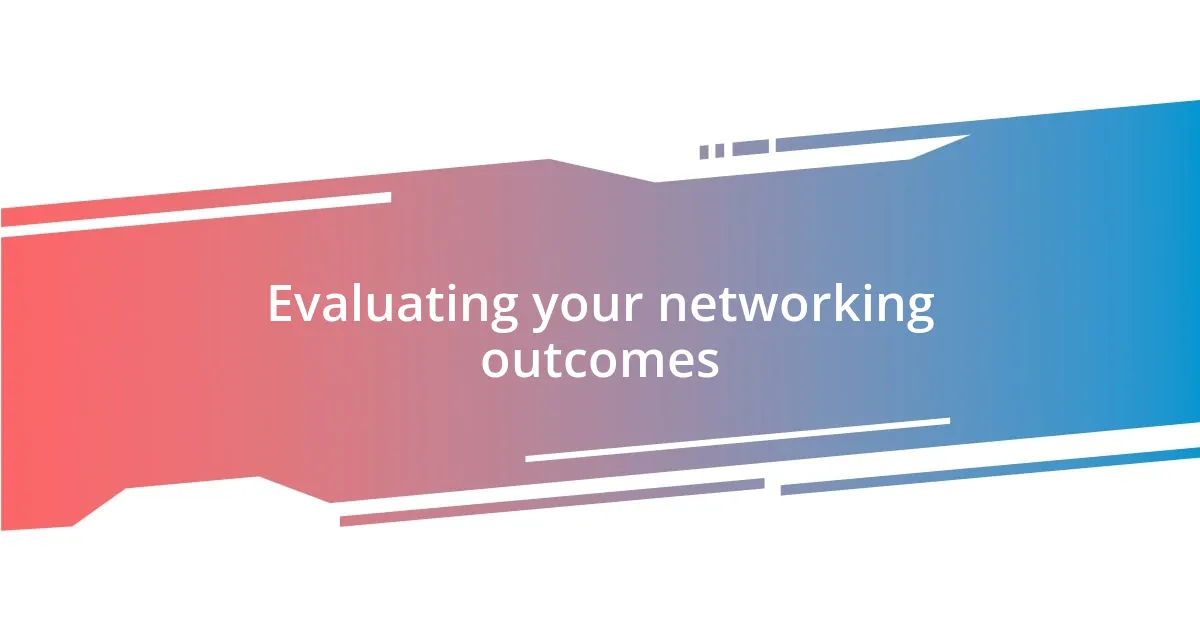
Evaluating your networking outcomes
Evaluating your networking outcomes is essential for understanding the effectiveness of your efforts. After attending a conference, I like to reflect on the connections made and the value they bring. I often ask myself: Did the conversations lead to any tangible opportunities? Last year, I followed up with a few attendees and was pleasantly surprised to find that several were eager to collaborate on projects. It’s incredible how revisiting those interactions can uncover possibilities.
Another aspect worth considering is the quality of relationships built through networking. I remember a particular coffee meeting where we shared our professional journeys and personal stories. It wasn’t just about exchanging business cards; it was about building trust and rapport. I’ve found that nurturing those deeper connections has often led to unexpected opportunities down the line. How often do you take the time to evaluate the depth of your connections rather than just their number?
Lastly, I encourage you to track any outcomes from your networking efforts systematically. Keeping a simple spreadsheet with notes on each contact, follow-up actions, and results has proven invaluable for me. This approach has allowed me to pinpoint which networking strategies yield the best results over time. Have you ever considered turning your networking experiences into measurable outcomes? It transforms networking from a casual activity into a strategic element of your professional journey.




